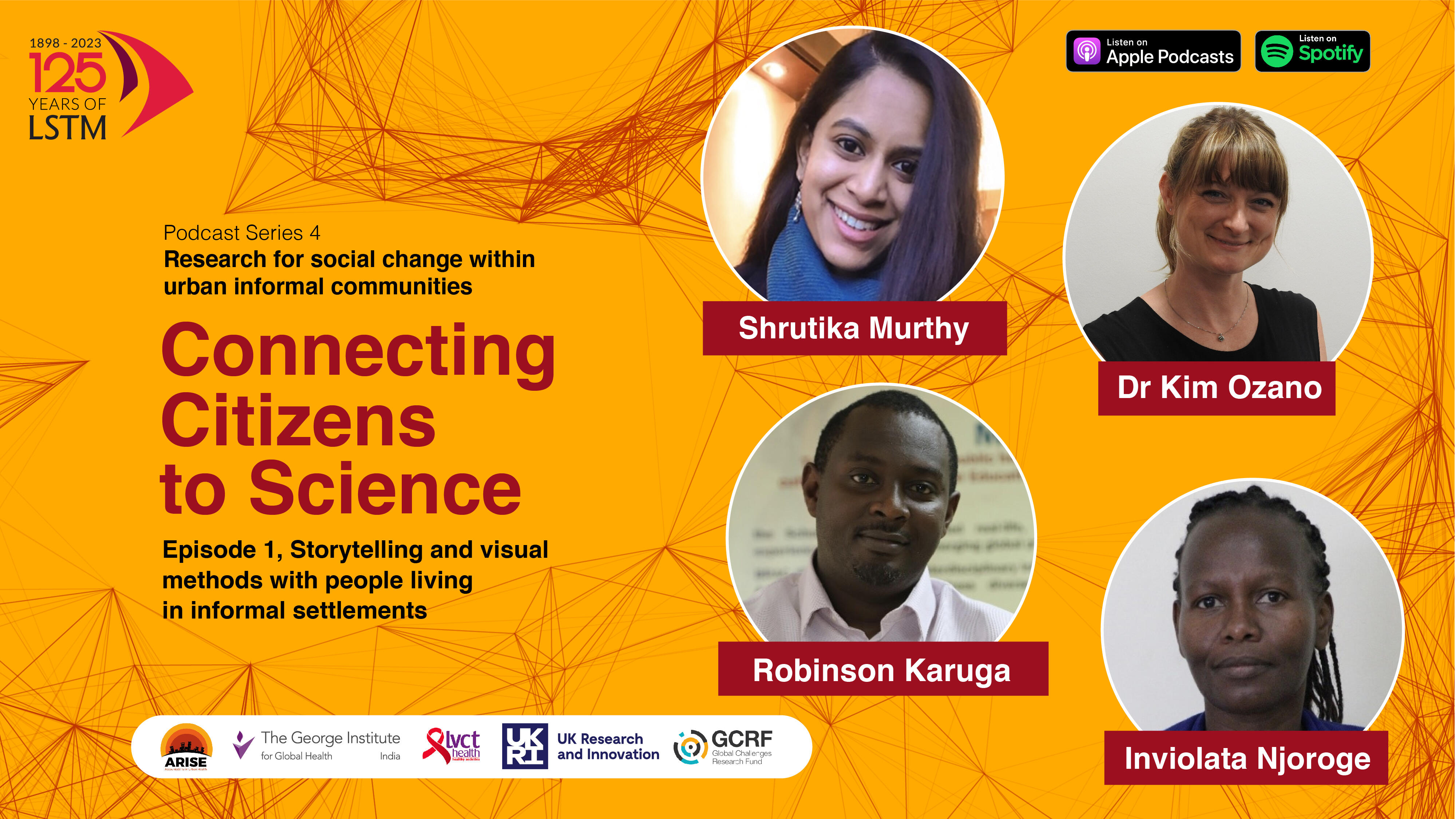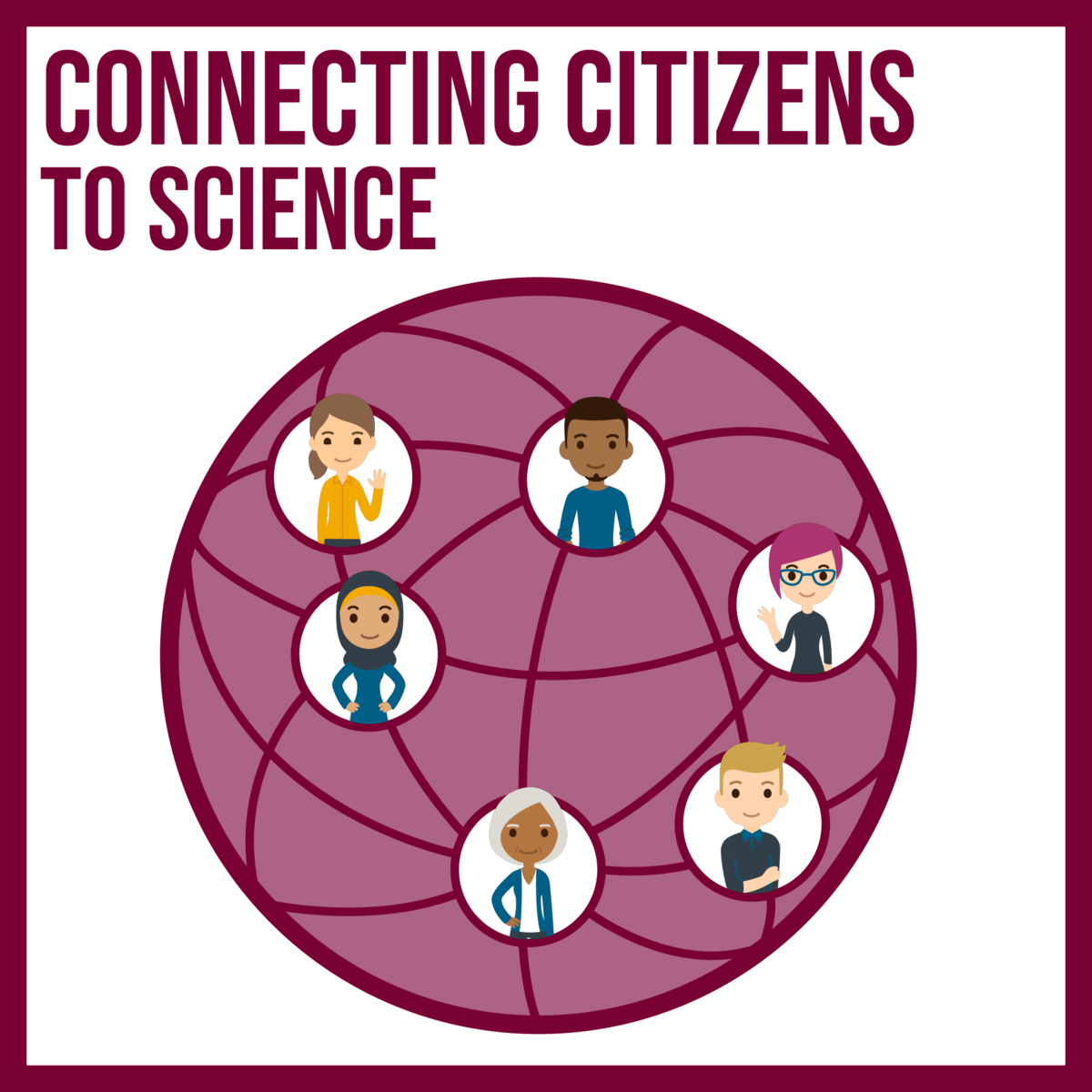
Series 4 is brought to us by the ‘Accountability and Responsiveness in Informal Settlements for Equity’ abbreviated to ARISE.
The ARISE consortium is all about promoting social change for improved health and wellbeing with communities and people living and working within urban informal spaces. Together, across 10 partners in 4 countries – Bangladesh, India, Kenya and Sierra Leone- they are co-developing solutions with communities to health and wellbeing challenges. However, co-production of knowledge for action is challenging due to the many and intersecting inequalities and power relations between researchers, development professionals, activists and communities. We will be exploring how ARISE is working to overcome these, in partnership with people in urban informal settlements or slums, to stimulate change.
In this week’s episode we are talking to Inviolata Njoroge from LVCT Kenya and Shrutika Murthy from The George Institute for Global Health (TGI), India. They have shared their experiences of using visual methods and storytelling to bridge the power-laden distances between lived realities of waste pickers, child headed households, the elderly and people with disabilities in urban informal communities and research and policy. We hear about:
- methods that have been used to connect with the most marginalised and often hidden people in urban informal communities
- how different intersecting identities and inequities add new layers of vulnerability in urban informal settlements
- the use of participant shadowing as an activity to capture experience and context of vulnerable people and what needs to be considered before using this as a method to connect with people
- how the photovoice method has brought out silent voices and stories that are often left unheard
- The importance of considering researcher and community mental health when using these in-depth exploratory and creative methods with vulnerable populations
Guest presenter for this series is Robinson Karuga
Research, Evaluation and Learning Manager, LVCT Health
Robinson Karuga is a Health Systems and Policy Research specialist. His area of specialization is community health systems research, with a focus on community participation in governance and embedding of quality improvement approaches. Karuga is a co-investigator in ARISE (Accountability and Responsiveness in Informal Settlements for Equity), a multi-country research consortium that seeks to generate evidence on how to apply community-based participatory approaches to empower marginalized residents of urban informal settlements to advocate for improvements to factors that affect their health and wellbeing. Within ARISE, Robinson connects citizens with science through the implementation of community-based participatory research such as photo voice and building the capacity of co-researchers in reflexive methods.
As the Research Capacity Strengthening lead in the ARISE Consortium, Karuga is responsible for developing and implementing the Consortium’s capacity strengthening strategy that targets 29 early and mid-career researchers, a Ph.D. cohort of 9 candidates, and community co-researchers in four countries across Africa (Kenya, Sierra Leone) and Asia (India and Bangladesh).Robinson Karuga is currently the Research Evaluations and Learning Manager at LVCT Health, a Kenyan not-for-profit organization that seeks to improve the health and well-being of vulnerable and marginalized populations through research, technical support to governments, and policy advocacy.
Inviolata Njoroge
Research officer, LVCT Health
Inviolata has 15 years of managing programs that target marginalized and vulnerable populations in Kenya.
She implemented the ambitious 5-year DREAMS project at LVCT Health that targeted vulnerable adolescent girls and young women living in urban informal settlements and poor rural areas. In her role within DREAMS, she managed the delivery of life-saving interventions to 34,000 adolescent girls and young women. She was responsible for leading the social protection component of DREAMS. Inviolata is currently leading the implementation of photovoice research with children heading households, persons with disability and older persons living in Nairobi’s informal settlements. Inviolata is passionate about helping the most vulnerable persons.
Shrutika Murthy
Research Assistant, The George Institute for Global Health (TGI), India
PhD Student, Liverpool School of Tropical Medicine (LSTM), UK
Shrutika Murthy is a Research Assistant at The George Institute for Global Health, India (TGI) and works in the Accountability for Informal Urban Equity Hub (ARISE). Shrutika possesses an inter-disciplinary background, having graduated with a Bachelors in Economics and a Masters in International Relations. Her work and research interests revolve around issues pertaining to caste, gender, urban poverty and health systems and policy. She is currently pursuing her PhD from the Liverpool School of Tropical Medicine (LSTM), wherein she is trying to understand the embodiment of stigma and discrimination among waste workers in Shimla (Himachal Pradesh) and its impact on their health, well-being and agency.
- https://www.georgeinstitute.org/people/shrutika-murthy
- https://www.ariseconsortium.org/learn-more/multimedia/shadowing-suvartha/
- https://www.ariseconsortium.org/voice-quilt-search/
- https://www.ariseconsortium.org/the-voice-quilt-amplifying-the-voices-of-waste-worker-communities/
- https://www.ariseconsortium.org/learn-more-archive/viral-loads-anthropol...

This is a podcast in the series: Connecting Citizens to Science, which focuses on health research based on equitable partnerships between researchers and communities.